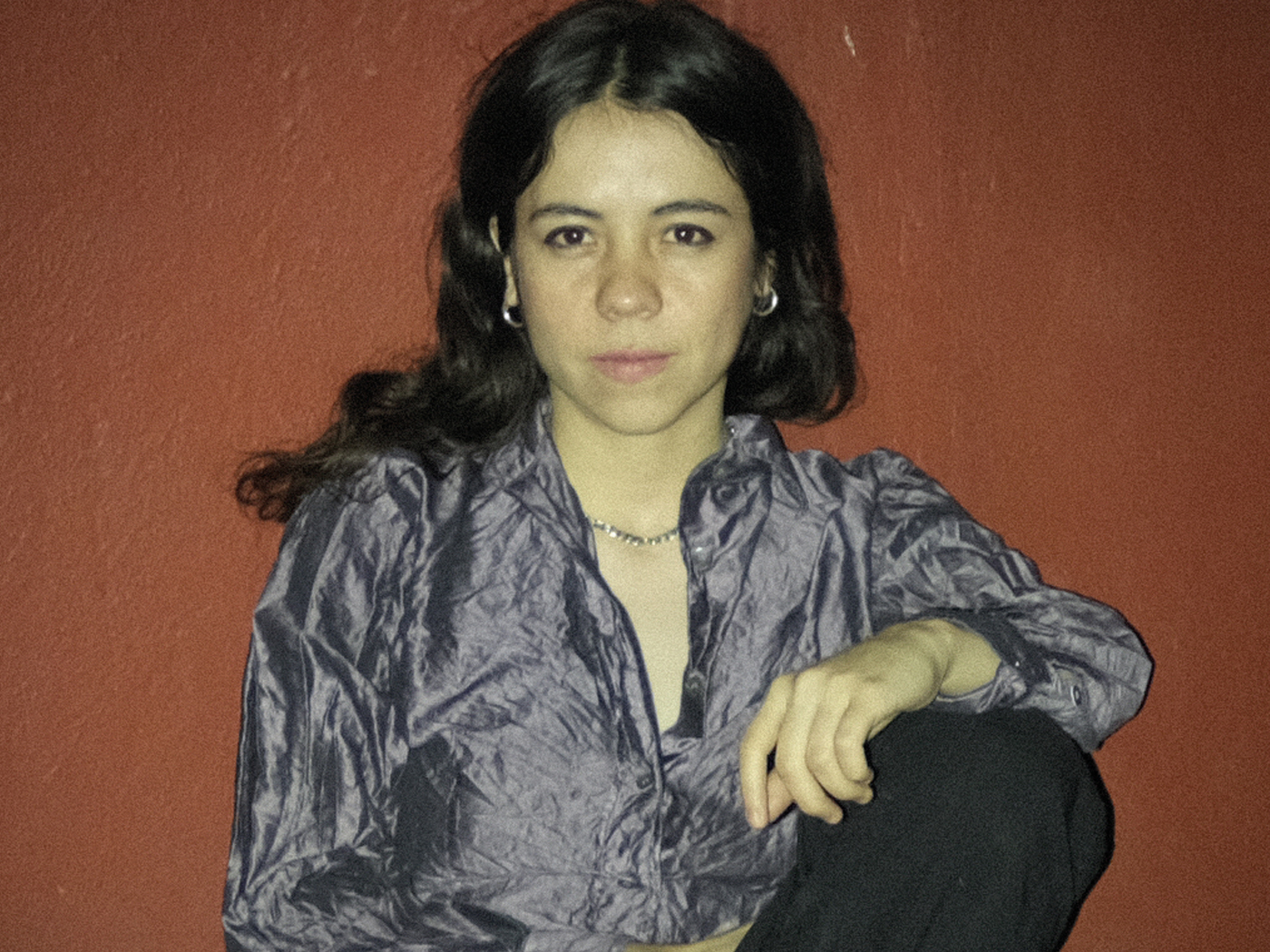
Nobody can make a cello honk, slither, twang and gurgle like Mabe Fratti. In just a few short years, the prolific Guatemala-born, Mexico City-based musician, singer and composer has built an impressive international profile in experimental pop circles. Sentir Que No Sabes (which translates as Feel Like You Don’t Know) is her fourth album under her own name since 2020. Last year, she also released an album as half of Titanic, a jazzy avant-chanson duo project with her musical and life partner Hector Tosta (AKA I La Católica), and another with the improvisational quartet Amor Muere.
BRUCE SPRINGSTEEN IS ON THE COVER OF THE NEW UNCUT – ORDER YOUR COPY HERE
The 32-year-old Fratti has also worked with a promiscuous gallery of collaborators from Berlin post-punk legend Gudrun Gut to Danish indie-rockers Efterklang, British post-folk singer Ben Howard and sometime Björk/Thurston Moore drummer Chris Corsano. Howard likens Fratti’s performance style to “watching a sunbeam” while Corsano calls her music “a continual opening of possibilities.”
Following in a rare lineage that includes Arthur Russell, Charlotte Moorman and her current personal hero, South Korea’s Okkyung Lee, Fratti uses the cello as wide-open sound laboratory as much as solo instrument, fusing acoustic chamber-pop with analogue electronics, improvisation with more composed pieces, vocal-led songs with instrumental audioscapes. Crucially, even the most obtuse music she creates with Tosta (credited here as arranger, producer, co-writer and multi-instrumentalist) mostly falls on the sweeter side of wonky, the sunny side of abrasive. This is art-pop in the tradition of Kate Bush, Björk and Julia Holter more than confrontational icons like Yoko Ono, Merzbow or Gazelle Twin. All have their own beauty, of course, but Fratti’s sonic exploration tends to be more playful than punishing.
Fratti has billed Sentir Que No Sabes as her embrace of “groovy” sounds, which makes sense up to a point. Although the album is hardly stacked with banging party anthems, she gives more prominence to shiny melodic hooks and sinewy, propulsive rhythms than on past releases. Twinkly and lustrous, “Enfrente” (“In Front”) brings electronic dance-pop signifiers to the foreground with sudden eruptions of glassy, crystalline synth and unexpected swerves into organic drum’n’bass percussion. The spectral sci-fi lullaby “Quieras O No” (“Whether You Want It Or Not”) features layered vocoder harmonies that sound almost like devotional hymns, while “Márgen Del Índice” (“Index Margin”) opens with a fragrant, airy vocal and an infectious mechanical shuffle-beat before unravelling into gnarly clatter and merciless cello abuse.
Sentir Que No Sabes features some of Fratti’s most beautiful avant-pop compositions so far. Witness the precisely sculpted jewel-box ballad “Pantalla Azul” (“Blue Screen”), with its luminous falsetto harmonies, plucked pizzicato strings and deceptively sweet lounge-jazz sparkle, which takes its author into Joni Mitchell territory. There’s also the voluptuous “Oidis” (“Ears”), whose brassy fanfares, stumbling waltz-time rhythm and warm-blooded serotonin surges invoke Zach Condon’s rapturously retro Beirut project. Fratti’s voice is sublime here, tremulous and delicate and loaded with the heightened emotional quality of duende, despite lyrics which often translate as goofy wordplay on the page. “Flee towards your ears,” she sobs, “dreams are for days / The days are days.” It sounds much more dramatic in Spanish.
Ears are something of a motif in Fratti’s opaque lyrical ruminations. “Maybe there are ears in the ceiling,” she muses on album opener “Kravitz”, “maybe someone is on the other side of the wall”. The track’s title playfully references the broad mixtape menu that Fratti and Tosta ingested during the album’s production, which included Lenny Kravitz alongside Alice In Chains and late-career Scott Walker. Needless to say, it sounds nothing like the funk-pop superstar with its stately martial backbeat, skeletal bassline and seasick brass swirls, all braided with a bluesy, breathy vocal that morphs into spine-tingling wordless abstraction.
As on Fratti’s previous albums, Sentir Que No Sabes is punctuated by shorter instrumental pieces that play like wilder digressions from the more polished, structured songs. “Elastica I” is a delicious exercise in time-warping cello-tronica, digital fuzz and artfully muffled distortion, while “Kitana” turns the cello into a bristling, rustling, scratchy bustle of noise, as if a family of mice are building a nest inside Fratti’s favoured instrument. Which frankly seems entirely possible, given her all-embracing musical credo.
Not everything on Sentir Que No Sabes is prime grade. There is a lightness to Fratti’s approach that can shade into whimsy at times, while the five-minute closing track “Angel Nuevo” never quite shakes off the feeling of an undercooked, unfocussed patchwork. That said, Fratti delivers some of her most musically and emotionally rich work to date here, her dreamy voice and impressionistic Spanish-language lyrics adding an extra layer of magical realism. That infinite possibility horizon just opened a little wider.
AAA






